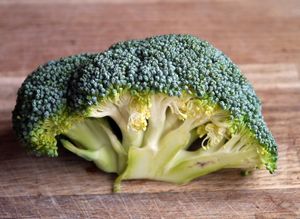
Our bodies use inflammation to help fight harmful bacteria and also protect us from diseases. In most cases, inflammation plays an important role in the healing process. However, some medical conditions cause faulty inflammatory responses, which are called chronic inflammatory diseases (cancer, heart disease, asthma, Alzheimer’s disease, obesity, type 2 diabetes).
One of the most natural ways a person can take to reduce inflammation is to follow the anti-inflammatory diet. An anti-inflammatory diet contains certain foods and illuminates others to minimize the symptoms of chronic inflammatory diseases.
What is an anti-inflammatory diet?
An anti-inflammatory diet includes foods that prevent inflammatory responses. Such diet replaces sugary, refined foods with whole, nutrient-rich foods.
An anti-inflammatory diet also contains an increased amount of antioxidants, which reduce the number of free radicals in the body. Free radicals are molecules in the body that damage cells and increase the risk of certain diseases.
Many popular diets already follow anti-inflammatory principles. For example, the Meditteranean diet contains fish, whole grains, and healthy fats, all of which are beneficial for the heart. Studies have shown that such diet reduces the effects of inflammation on the cardiovascular system.
What conditions can anti-inflammatory diet help?
Doctors and dietitians often prescribe anti-inflammatory diet as a therapy for different conditions that are worsened by chronic inflammation.
An anti-inflammatory diet can help many conditions, such as
- Psoriasis
- Asthma
- Crohn’s disease
- Inflammatory bowel disease
- Rheumatoid arthritis
- Colitis
- Eosinophilic esophagitis
- Diabetes
- Obesity
- Heart disease
- Metabolic syndrome
- Lupus
- Hashimoto’s disease
Following the anti-inflammatory diet can also prevent the risk of different types of cancers, including colorectal cancer.
Foods to eat
Berries
Although there are many of varieties, some of the most common include
- Blackberries
- Blueberries
- Cherries
- Raspberries
- Strawberries
Berries are packed with antioxidants, which have powerful anti-inflammatory effects that reduce your risk of disease.

When you consume berries, your body produces natural killer cells (NK cells), which keep your immune system functioning properly. In a study published by National Institutes of Health (NIH), men who consumed blueberries every day produced significantly more NK cells than those who did not eat the berries.
In another study, obese men and women were given strawberries every day. By the end of the experience, the result showed that the participants had lower levels of certain inflammatory markers associated with heart disease[4].
Broccoli

Needless to say, broccoli is extremely nutritious. Along with cauliflower, Brussels sprouts and kale, broccoli is a cruciferous vegetable, which means that it is associated with a decreased risk of heart disease and cancer[5].
Broccoli is also rich in sulforaphane, an antioxidant that fights inflammation by reducing your levels of cytokines and NF-kb, which drive inflammation.
Avocados
 Not only avocados are tasty and Instaworthy, but they also offer various beneficial compounds that protect against inflammation and reduce your cancer risk.
Not only avocados are tasty and Instaworthy, but they also offer various beneficial compounds that protect against inflammation and reduce your cancer risk.
Avocados are packed with potassium, fiber, magnesium and heart-healthy monounsaturated fats. They also contain tocopherols and carotenoids, which are linked to reduced cancer risk. Moreover, avocados reduce inflammation in young skin cells.
NIH published a study, in which people consumed a slice of avocado with a hamburger for a certain period. As a result, they had lower levels of the inflammatory markers NF-kb and IL-6 than participants who ate the hamburger without the avocado.
Fatty fish

Tuna, salmon, herring, mackerel, sardines – all these fatty fish hold an abundant amount of the omega-3 fatty acids EPA and DHA, which have anti-inflammatory effects. Although fish contain some omega-3 fatty acids, those mentioned above have the most of it.
When you eat fish, your body metabolizes these fatty acids into resolvins and protectins – compounds which have strong anti-inflammatory effects.
In clinical studies, people who were consuming salmon (EPA and DHA) supplements had decreases in the inflammatory marker C-reactive protein. However, in a different study, people with an irregular heartbeat who took the same supplements experienced no difference in inflammatory markers compared to those who received a placebo.
Green tea

Green tea is one of the healthiest drinks you can have. Green tea reduces inflammation and protects safeguards cells from damage, ultimately helping you to avoid the risk of cancer, Alzheimer’s and heart disease, obesity and other conditions.
Green tea has anti-inflammatory and antioxidant properties, a substance called epigallocatechin-3-gallate (EGCG), which reduces pro-inflammatory cytokine production and protects your cells from damage.
Turmeric

Turmeric is a spice that is often used in curries and other Indian dishes. It recently became very popular due to its content of powerful anti-inflammatory nutrient curcumin. It reduces the inflammation related to arthritis, diabetes and other diseases.
Turmeric powder is extremely easy to incorporate into your diet. You can add it anywhere – from oatmeal and smoothies to rice and soups. It gives food a beautiful orange color. However, if you want to rip more benefits from this superfood, consider taking turmeric supplements containing isolated curcumin. Curcumin supplements are often combined with piperine, which can boos curcumin absorption by 2,000%.
Alternative treatment

Following the anti-inflammatory diet is the most natural way to protect yourself from diseases caused by inflammation, one of which, is cancer. Alternative cancer treatments may not play a direct role in curing the disease, but they may help the patient to cope with signs and symptoms caused by cancer and cancer treatments. Synergy Lifestyle Medicine takes an individual approach with every patient. Doctors at Synergy use a variety of specific lab results and genetic biomarkers to help guide optimal treatment for cancer and all chronic disease state.
Synergy uses a wide range of complementary therapies to enhance your immune system to more effectively and efficiently fight cancer and chronic disease. They also offer Fractionated Chemotherapy with Biological Modifiers, a low-dose chemotherapy protocol designed to target cancer cells better while leaving healthy cells intact.